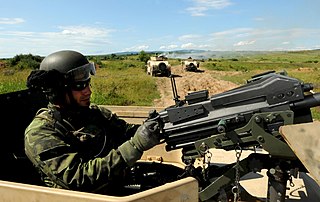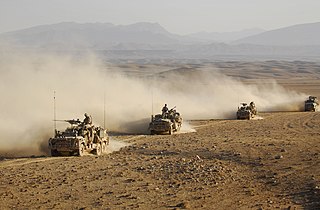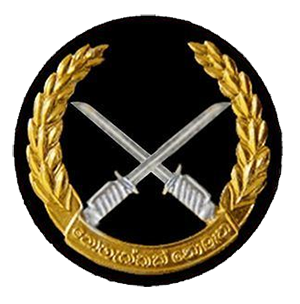Special forces units in the Israel Defense Forces encompass a broad definition of specialist units. Such units are usually a regiment or a battalion in strength.
GSG 9 der Bundespolizei, formerly Grenzschutzgruppe 9, is the police tactical unit of the German Federal Police (Bundespolizei). The unit is responsible for combatting terrorism and violent crime, including organized crime. In addition to its headquarters location in Sankt Augustin-Hangelar near Bonn, it also has a base in Berlin. Since 1 August 2017, it has been subordinate to the Federal Police Directorate 11. The state police (Landespolizei) maintain their own regional tactical units known as the Spezialeinsatzkommando (SEK).
India has several Special Forces (SF) units, with the various branches of the Indian Armed Forces having their own separate special forces units. The Para SF of the Indian Army, MARCOS of the Indian Navy and the Garud Commando Force of the Indian Air Force. There are other special forces which are not controlled by the military, but operate under civilian organisations, such as the National Security Guard under the Home Ministry and the Special Group under the Research and Analysis Wing, the external intelligence agency of India. Small groups from the military SF units are deputed in the Armed Forces Special Operations Division, a unified command and control structure.

The Special Reconnaissance Regiment (SRR) is a special reconnaissance unit of the British Army. It was established on 6 April 2005 and is part of the United Kingdom Special Forces (UKSF).

The Nucleo Operativo Centrale di Sicurezza(NOCS) (lit. 'Central Security Task Group') is the police tactical unit of the Polizia di Stato, one of Italy's national police forces. It operates under the command of the Direzione Centrale della Polizia di Prevenzione (English: Central Directorate for the Anti-Terrorism Police).

The Frogman Corps is the maritime special operations force of the Danish Armed Forces part of Special Operations Command. On 1 July 2015, the Frogman Corps transferred from the Royal Danish Navy to the newly established Special Operations Command.

The 5. Pluk špeciálneho určenia, 5. PŠU is based in Žilina, and serves as the Slovak Armed Forces primary counter-terrorism and special operations unit. The unit is the main component of the newly created Special Operations Forces.

In Mexico, both the army and navy have special forces groups or elite units.

Denjaka is a counter-terrorism special operations force of the Indonesian Navy. It is a combined detachment formed from selected personnel of the Navy's frogmen unit (KOPASKA) and the Marine Corps' Amphibious Reconnaissance Battalion (Taifib).
Pasukan Gerakan Khas is a special operations command of the Royal Malaysia Police (RMP). The PGK has two distinct sub-units; the Special Actions Unit and the 69 Commando Battalion.

The special forces of the Australian Defence Force are units of Special Operations Command and associated units of the Royal Australian Navy and the Royal Australian Air Force that conduct and or support special operations to advance and protect the national security of the Commonwealth of Australia. The special forces of Australia have a lineage to a variety of units raised in the Second World War such as the Independent and Commando Companies, Z Special Unit, Navy Beach Commandos, and the Coastwatchers. Australian special forces have most recently been deployed to Iraq in Operation Okra as the Special Operations Task Group, as the Special Operations Task Group in Afghanistan, in Afghanistan in support of the Australian Secret Intelligence Service and regularly for counter-terrorism pre-deploy to locations of major domestic events throughout Australia in readiness to support law enforcement such as the 2014 G20 Brisbane summit.

The Commando Regiment is the commando formation of the Sri Lanka Army. The unit specializes in various roles including hostage rescue, counter-terrorism, unconventional warfare, special reconnaissance, counter-insurgency, and personnel recovery. It was formed in 1980 and is based in Ganemulla, a suburb of Colombo.
The counter-terrorism page primarily deals with special police or military organizations that carry out arrest or direct combat with terrorists. This page deals with the other aspects of counter-terrorism:

The Special Operations Battalion, or popularly BSD was founded on 8 September 2000 when the Special Combat Skills Center from Šepurine and the 1st Croatian Guards Brigade were amalgamated. It ceased to exist in 2014, when it was transformed into the Special Operations Command.

The Marine Corps Security Force Regiment is a dedicated expeditionary security and anti-terrorism regiment of the United States Marine Corps. Its mission is to provide security forces to guard high-value naval installations, most notably those containing nuclear vessels and weapons. Additionally, it also provides the Fleet Anti-terrorism Security Teams (FAST) and Recapture Tactics Teams (RTT). Marines who complete Security Forces training are assigned a secondary Military Occupational Specialty (MOS) of 8152, while instructors can earn 8153.
The Lebanese Special Operations Command (LSOCOM) is the unified combatant command charged with overseeing the various special warfare operations component commands of the Lebanese Armed Forces (LAF) which groups Lebanon's special combat units. The command is part of the LAF.

The Deployable Specialized Forces (DSF) —formerly Deployable Operations Group— are part of the United States Coast Guard that provide highly equipped, trained and organized deployable specialized forces, to the Coast Guard, United States Department of Homeland Security (DHS), United States Department of Defense (DoD) and inter-agency operational and tactical commanders. The command was formerly headquartered in Arlington, Virginia where it was established on 20 July 2007, and was commanded by a captain. It was decommissioned by the Commandant of the Coast Guard, Admiral Robert J. Papp Jr. on 1 October 2013, with units previously assigned to the DOG being split between Coast Guard Pacific and Atlantic Area commands. The units were subsequently reorganized under Deployable Specialized Forces (DSF).
The National Special Operations Force (NSOF) has been Malaysia's main security force which serves as the first responder to any terror threats on the country's sovereignty after October 2016. The force covers elements from the Malaysian Armed Forces, Royal Malaysia Police and the Malaysian Maritime Enforcement Agency.
The 69 Commando ; also known as Very Able Troopers 69 is an elite multi-tasking special forces unit of the Royal Malaysia Police. The VAT 69 is based at Ulu Kinta, Perak and together with Special Actions Unit, they are part of Pasukan Gerakan Khas. The mission of 69 Commando is to conduct high-risk tasks such as counter-terrorism, hostage rescue, intelligence gathering and counter-insurgency within the borders of Malaysia.

The Netherlands Maritime Special Operations Forces is the special forces unit of the Marine Corps of the Royal Netherlands Navy. It is one of the three principal units tasked with special operations in the Netherlands. The unit can be deployed worldwide to conduct special operations, including counter-terrorism both overseas and domestically, with a maritime focus. Its operations are planned and coordinated by the Netherlands Special Operations Command.












